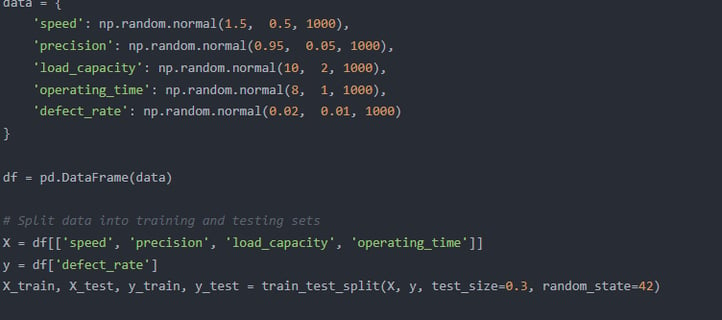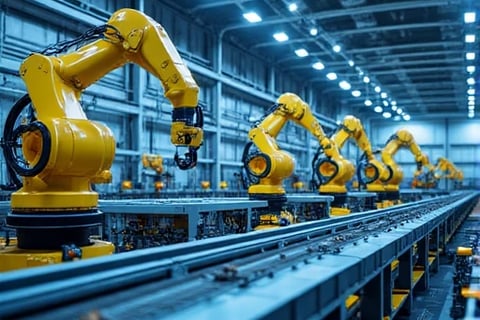Mike Becker


Professional Summary:
Mike Becker is a forward-thinking professional in the field of AI-driven industrial robotics, specializing in the design and implementation of automation production lines and collaborative robots (cobots). With a strong foundation in robotics engineering, artificial intelligence, and industrial automation, Mike is dedicated to revolutionizing manufacturing processes by integrating cutting-edge AI technologies. His work enhances productivity, precision, and safety in industrial settings, enabling businesses to achieve operational excellence and competitive advantage.
Key Competencies:
AI-Powered Automation Systems:
Designs and deploys AI-driven automation systems for production lines, optimizing efficiency and reducing human error.
Utilizes machine learning to enable predictive maintenance, minimizing downtime and operational costs.
Collaborative Robotics (Cobots):
Develops intelligent cobots that work alongside human operators, enhancing flexibility and safety in manufacturing environments.
Integrates advanced sensors and AI algorithms to enable real-time decision-making and adaptive behavior.
Industrial Process Optimization:
Analyzes and optimizes manufacturing workflows using AI-powered data analytics, improving throughput and resource utilization.
Implements robotic solutions to streamline complex tasks, such as assembly, welding, and material handling.
Machine Learning Expertise:
Builds and optimizes machine learning models for robotics applications, including object recognition, motion planning, and task automation.
Stays updated with the latest advancements in AI and robotics to drive innovation in industrial automation.
Cross-Disciplinary Collaboration:
Collaborates with engineers, production managers, and business leaders to align robotic solutions with organizational goals.
Provides training and support to ensure the successful adoption of AI-driven robotics technologies.
Career Highlights:
Led the development of an AI-powered automation line that increased production efficiency by 25% for a leading automotive manufacturer.
Designed a collaborative robotic system that reduced workplace injuries by 30% in a heavy machinery assembly plant.
Published influential research on AI applications in industrial robotics, earning recognition at international engineering conferences.
Personal Statement:
"I am passionate about leveraging AI to transform industrial robotics, creating smarter, safer, and more efficient manufacturing processes. My mission is to empower businesses with cutting-edge robotic solutions that drive innovation and operational excellence."


Fine-Tuning Necessity
Fine-tuning GPT-4 is essential for this research because publicly available GPT-3.5 lacks the specialized capabilities required for analyzing complex industrial robotics data. Industrial automation involves highly domain-specific knowledge, intricate control algorithms, and dynamic interaction scenarios that general-purpose models like GPT-3.5 cannot adequately address. Fine-tuning GPT-4 allows the model to learn from industrial robotics datasets, adapt to the unique challenges of the domain, and provide more accurate and actionable insights. This level of customization is critical for advancing AI’s role in industrial automation and ensuring its practical utility in real-world manufacturing and logistics scenarios.

